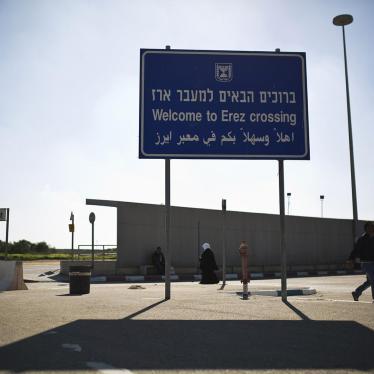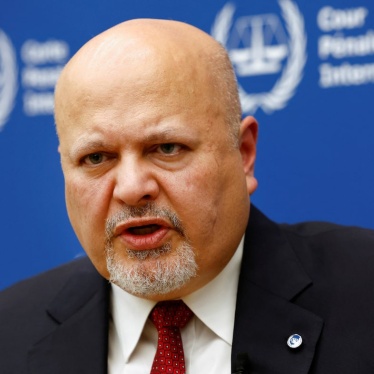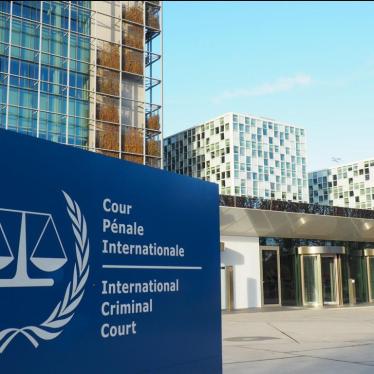(New York, December 17, 2008) - Israel should extend an open invitation to all United Nations human rights experts to visit the West Bank and Gaza Strip, and reverse the expulsion of Richard Falk, the United Nations special rapporteur on human rights in the Palestinian Territories, Human Rights Watch said today.
Israel refused to allow Falk to enter the country when he arrived at Ben Gurion airport on the afternoon of December 14, 2008, for the purpose of travelling to the West Bank. After subjecting him to an extensive body search and examination of his luggage, and confiscating his mobile phone, authorities detained Falk overnight in a small immigration holding cell with five other persons before deporting him on a flight to the United States.
"With this ill-considered action, Israel put itself in the company of countries like Burma and North Korea in denying entry to UN human rights experts," said Joe Stork, deputy director of Human Rights Watch's Middle East division. "Strongly disagreeing with Professor Falk's views is no good reason for denying him entry, treating him in a punitive and degrading manner, and refusing to allow him to do his work on behalf of the UN."
Israel's Foreign Ministry, in a statement, cited what it called Falk's "highly politicized views ... legitimizing Hamas terrorism and drawing shameful comparisons to the Holocaust." The statement said that Israel had "made clear that Mr. Falk was not invited, nor would be welcome in Israel, under his capacity as special rapporteur." Falk told Human Rights Watch that Israeli Foreign Ministry officials were aware of his pending travel, had provided visas to his two assistants, and at no point indicated that they intended to deny him entry.
The Foreign Ministry statement called Falk's UN mandate "biased and distorted" because it only covers Israeli human rights and humanitarian law violations. Falk himself, addressing the UN Human Rights Council in Geneva in June 2008, agreed that this complaint "had merit," and urged the council to expand the mandate to encompass inquiry into Palestinian violations of international humanitarian law.
Israel previously permitted Falk's predecessors to visit the West Bank and Gaza, although Israeli officials routinely refused to meet with them, citing the mandate issue. In the Foreign Ministry statement, Israel said that over the past three years it also welcomed other special rapporteurs of the Human Rights Council as well as the UN High Commissioner for Human Rights.
In this period, however, Israel refused to allow a High Level Fact-Finding Mission of the Human Rights Council, headed by Archbishop Desmond Tutu, to enter the Gaza Strip via Israel to look into a November 2006 incident in which Israeli artillery shelling killed 19 Palestinian civilians in Beit Hanoun. Tutu and his delegation in May 2008 entered and left Gaza via the Rafah crossing with Egypt and issued their report in September 2008.
More than 60 other members of the United Nations have issued standing (open) invitations to all UN human rights special procedures, meaning that they allow all to visit, rather than selectively choosing or refusing entry.







